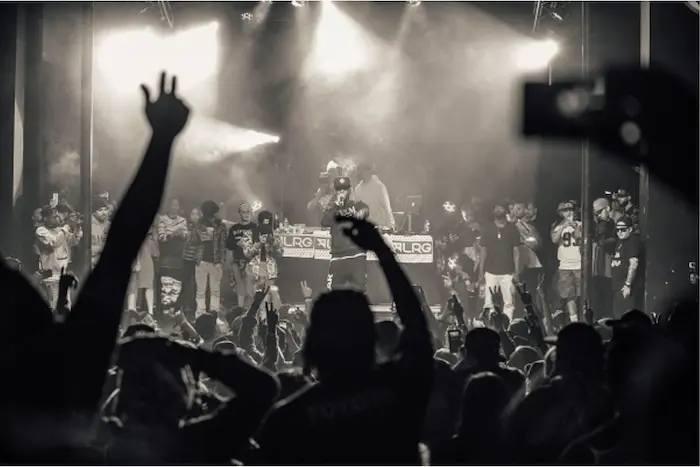Rap music is a powerful form of expression. It combines rhythm, rhyme, and storytelling. The lyrics play a crucial role in conveying messages, emotions, and experiences. In this article, we will explore the various aspects of rap lyrics, including their themes, styles, and cultural significance. We will also examine how rap lyrics have evolved over time and their impact on society.
The Evolution of Rap Lyrics
Early Influences on Rap
Rap music originated in the 1970s. It emerged from the hip-hop culture in New York City. Early rap lyrics were heavily influenced by funk and disco. Artists like DJ Kool Herc and Grandmaster Flash laid the groundwork. They focused on rhythm and fun. The lyrics often included simple, catchy phrases. They were meant to entertain and engage the audience.
The Golden Age of Rap
The late 1980s to early 1990s is known as the golden age of rap. This period saw a surge in creativity and diversity. Artists like Run-D.M.C., N.W.A., and A Tribe Called Quest explored various themes. They addressed social issues, personal experiences, and political messages. The lyrics became more complex. Rhyme schemes and wordplay became more sophisticated. This era marked a significant turning point in rap music.
Contemporary Rap Lyrics
In the 2000s, rap continued to evolve. Artists like Jay-Z, Eminem, and Kendrick Lamar pushed the boundaries of lyricism. They introduced new styles and themes. Contemporary rap lyrics often include personal narratives, introspection, and social commentary. The genre has also diversified globally, with artists from different backgrounds bringing their unique perspectives.
Themes in Rap Lyrics
Social Justice and Activism
Many rap lyrics focus on social justice issues. Artists use their platform to raise awareness about inequality, racism, and violence. For example, songs like “Fight the Power” by Public Enemy highlight systemic racism. Similarly, Kendrick Lamar’s “Alright” became an anthem for the Black Lives Matter movement. These songs resonate with listeners and inspire action.
Personal Struggles and Triumphs
Rap is also a medium for personal storytelling. Artists often share their experiences with hardship, addiction, and resilience. Eminem’s lyrics, for example, delve into his struggles with fame and mental health. This vulnerability allows listeners to connect on a deeper level. The authenticity in these narratives can be both relatable and inspiring.
Party and Celebration
Not all rap lyrics are serious. Many songs celebrate life, success, and enjoyment. Artists like Drake and Lil Wayne create catchy, upbeat tracks meant to entertain. These lyrics often focus on parties, relationships, and living in the moment. This theme is crucial in making rap music enjoyable and accessible.
The Craft of Writing Rap Lyrics
Rhyme Schemes and Rhythm
Rhyme is a fundamental element of rap lyrics. Artists use various rhyme schemes to enhance their flow. Common techniques include end rhymes, internal rhymes, and slant rhymes. These devices create a musical quality. They also add depth to the lyrics. The rhythm of the lyrics must match the beat. This requires skill and creativity.
Wordplay and Metaphors
Clever wordplay is a hallmark of great rap lyrics. Artists often use metaphors and similes to convey complex ideas. This figurative language adds layers of meaning. For instance, J. Cole often uses metaphors to illustrate his life experiences. This technique allows listeners to engage with the lyrics on multiple levels.
Storytelling Techniques
Rap is a storytelling medium. Many artists weave narratives into their lyrics. They create characters and scenarios that draw listeners in. For example, Nas’s “Illmatic” tells vivid stories about life in New York City. Effective storytelling in rap requires strong imagery and emotional resonance. This connection makes the lyrics memorable and impactful.
The Cultural Significance of Rap Lyrics
Voice of the Marginalized
Rap has historically been a voice for marginalized communities. It addresses issues that mainstream media often overlooks. Artists articulate the struggles of their communities through their lyrics. This has given rise to a sense of empowerment. It allows listeners to feel seen and understood.
Influence on Popular Culture
Rap lyrics have significantly influenced popular culture. They shape trends in fashion, language, and lifestyle. Phrases from rap songs often enter everyday vernacular. Artists like Cardi B and Nicki Minaj impact conversations around femininity and empowerment. This cultural influence extends beyond music, affecting various aspects of society.
Global Reach and Adaptation
Rap music is a global phenomenon. Artists worldwide adapt the genre to their cultural contexts. From French rap to K-Pop collaborations, the genre transcends borders. This globalization of rap lyrics reflects diverse experiences. It also showcases the universal appeal of storytelling through music.
See Also: 8 Step-by-Step Guide to How to Make a Latin Trap Beat
Conclusion
In conclusion, rap lyrics are a vital aspect of the genre. They serve as a medium for storytelling, social commentary, and personal expression. The evolution of rap lyrics reflects broader cultural shifts and societal issues. From early influences to contemporary themes, the impact of rap is profound. As the genre continues to evolve, its lyrical content will remain relevant and influential. The power of words in rap music is undeniable, making it a significant force in the music industry and society at large.
Related Topics
Drill vs Trap Music, What’s the Difference?

